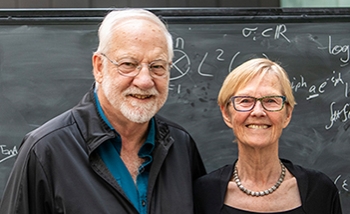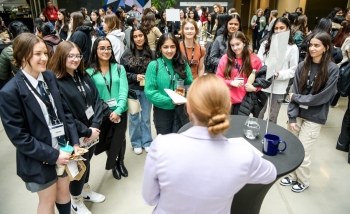Watch the live webcast on this page on Wednesday, November 4 at 7 pm ET.
Two essential ingredients of the scientific method are skepticism and independent confirmation – the ability to glean for oneself whether an established theory or a new hypothesis is true or false. But not everyone has the capacity to perform the experiments to obtain such a confirmation.
Consider, for example, the costs of constructing your own Large Hadron Collider, or your ability as a non-expert to critically read and understand a scientific publication. In practice, acceptance of scientific theories is more often based on trust than on independent confirmation. When that trust is eroded, issues emerge.
In recent years, there has been a rise in cynicism about many traditionally well-respected institutions – science, academia, news reporting, and even the concepts of experts and expertise more generally. Many people’s primary – or only – exposure to science is through biological or health science, especially during the COVID-19 pandemic.
In health research, rising cynicism has spawned the anti-vaccine movement, and a growing reliance on advice from peer networks rather than experts. In part, such movements are fuelled by several examples of provably false, so-called “scientific results,” coming about either through fraud or incompetence. While skepticism is crucial to science, cynicism rooted in a lack of trust can devalue scientific contributions.
Catherine Beauchemin is a Professor of Physics at Ryerson University and a Deputy Program Director in the RIKEN Interdisciplinary Theoretical and Mathematical Sciences Program in Japan. For the last 18 years, she has been developing mathematical and computational descriptions of how viruses spread from cell to cell, a field she calls “virophysics.”
In her November 4 Perimeter Public Lecture webcast, Beauchemin will highlight some of the issues that have eroded trust in health research, presenting examples from influenza and COVID-19. She will show why she believes many of these issues have their root in the fact that hypotheses in health research are formulated as words rather than mathematical expressions – and why a dose of physics may be just the prescription we need.
The Perimeter Institute Public Lecture Series is made possible in part by the support of donors like you. Be part of the equation:
https://insidetheperimeter.ca/donate
Further exploration
About PI
Perimeter Institute is the world’s largest research hub devoted to theoretical physics. The independent Institute was founded in 1999 to foster breakthroughs in the fundamental understanding of our universe, from the smallest particles to the entire cosmos. Research at Perimeter is motivated by the understanding that fundamental science advances human knowledge and catalyzes innovation, and that today’s theoretical physics is tomorrow’s technology. Located in the Region of Waterloo, the not-for-profit Institute is a unique public-private endeavour, including the Governments of Ontario and Canada, that enables cutting-edge research, trains the next generation of scientific pioneers, and shares the power of physics through award-winning educational outreach and public engagement.
You might be interested in


